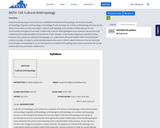
The syllabus for ANTH 120: Cultural Anthropology, taught at Mary Baldwin University by Dr. Abigail Wightman, PhD.
- Subject:
- Anthropology
- Material Type:
- Syllabus
- Author:
- Abigail Wightman
- Date Added:
- 03/17/2020

The syllabus for ANTH 120: Cultural Anthropology, taught at Mary Baldwin University by Dr. Abigail Wightman, PhD.
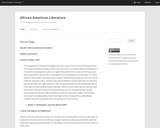
AAS 267, African American Literature, is a survey course that explores the early days of enslavement to the present. The course includes readings, analysis, and discussion of literary texts written by African Americans, paying particular attention to the political, historical, and social context that informs these texts.
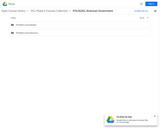
This course covers American Government: the Constitution, the branches of government (Presidency, Congress, Judiciary) and how politics works: elections, voting, parties, campaigning, policy making. In addition weęll look at how the media, interest groups, public opinion polls and political self-identification (are you liberal or conservative, Democrat or Republican or something else?) impact politics and political choices. Weęll also cover the basics in economic, social and foreign policy and bring in current issues and show how they illustrate the process.
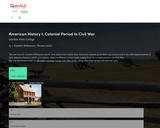
This text from Dr. Franklin Williamson and Dr. Tom Aiello from Gordon State University contains all modular text content used in the LMS implementation of their American History I (HIST 2111) courses. American History 1 covers topics ranging from the colonial period to the Civil War.
The text was created under an Affordable Learning Georgia G2C Pilot Grant, taking place from Spring 2018 until Fall 2019.
Table of Contents:
Chapter 1 - The Colonial South
Chapter 2 - The Colonial North
Chapter 3 - 18th Century Colonial Life
Chapter 4 - The French and Indian War
Chapter 5 - American Revolution, Part 1
Chapter 6 - American Revolution, Part 2
Chapter 7 - Articles of Confederation
Chapter 8 - Early Republic
Chapter 9 - Jeffersonian Era
Chapter 10 - Market Revolution
Chapter 11 - The North and 19th Century Thought
Chapter 12 - Slavery and Southern Life
Chapter 13 - Western Expansion
Chapter 14 - Sectional Conflict
Chapter 15 - American Civil War
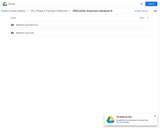
In this class we will practice skills in reading, analyzing, and writing about fiction, poetry and drama from a select sampling of 20th Century American Literature. Through class discussion, close reading, and extensive writing practice, this course seeks to develop critical and analytical skills, preparing students for more advanced academic work.
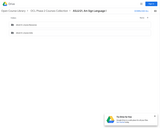
ASL I is an introduction to the naturally existing language widely used by Deaf people in North America. Since ASL is a visual-gestural language, students will need to develop unique communication skills. These consist of using the hands, body, face, eyes and space. In order to achieve progress in this class, it is important to become comfortable communicating with your whole body and listening with your eyes.
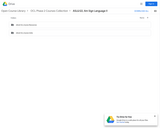
ASL II is a sequential course following ASL I, which continues to build knowledge of the naturally existing language widely used by Deaf people in North America. Since ASL is a visual-gestural language, students will need to continue to develop unique communication skills. These consist of using the hands, body, face, eyes and space. In order to achieve progress in this class, it is important to become comfortable communicating with your whole body and listening with your eyes.
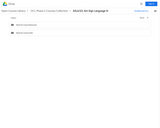
ASL III is the third quarter of the first year study of American Sign Language (ASL) and the people who use it. ASL III will enhance the use of ASL grammar and consist of concentrated efforts to develop the studentęs expressive and receptive skills. The course will continue to provide insights into Deaf Cultural values, attitudes and the Deaf community. Now learning more abstract concepts of the language, ASL III students will be able to: narrate events that occurred in the past, ask for solutions to everyday problems, tell about life events, and describe objects. Students will also be able to: demonstrate intermediate finger spelling competency, generate complex ASL structures with intermediate vocabulary knowledge, execute a wide variety of grammatical principles, including classifiers and inflections, adapt to different sign language registers, dialects and accents, and create opportunities to interact with members of the Deaf community.

This module is associated with Analog Communication Lab
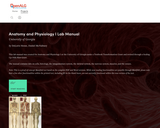
This lab manual was created for Anatomy and Physiology I at the University of Georgia under a Textbook Transformation Grant and revised through a Scaling Up OER Pilot Grant.
The manual contains labs on cells, histology, the integumentary system, the skeletal system, the nervous system, muscles, and the senses.
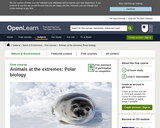
The extreme challenges of life in the polar regions require the animals who make their habitat there to make many adaptations. This unit explores the polar climate and how animals like reindeer, polar bears, penguins, sea life and even humans manage to survive there. It looks at the adaptations to physiological proceses, the environmental effects on diet, activity and fecundity, and contrasts the strategies of aquatic and land-based animals in surviving in this extreme habitat. This unit builds on and develops ideas from two other 'Animals at the extreme' units: The desert environment (S324_1) and Hibernation and torpor (S324_2).

This is a collection of mini lectures created by anthropologists and those in conversation with anthropology as supplimental material to assist college and university instructors who were made to shift their courses online because of COVID19.For more information, see here.To contribute, please create an OER author account and send your name and OER registered email to AnthropologyTeaching@gmail.com.
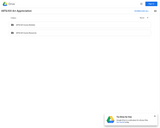
This is an exploration of visual art forms and their cultural connections for the student with little experience in the visual arts. The course includes a brief study of art history and in depth studies of the elements, media, and methods used in creative process and thought. Visual and performing arts are part of the Humanities: academic disciplines that study the human condition and, in addition to the arts, include languages, literature, law, history and religion. This course will teach students to develop a five-step system for understanding visual art in all forms based on description, analysis, meaning, context and judgment.Login: guest_oclPassword: ocl
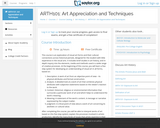
This course is an exploration of visual art forms and their cultural connections for the student with little experience in the visual arts. It includes a brief study of art history and in depth studies of the elements, media, and methods used in creative processes and thought. Upon successful completion of this course, students will be able to: interpret examples of visual art using a five-step critical process that includes description, analysis, context, meaning, and judgment; identify and describe the elements and principles of art; use analytical skills to connect formal attributes of art with their meaning and expression; explain the role and effect of the visual arts in societies, history, and other world cultures; articulate the political, social, cultural, and aesthetic themes and issues that artists examine in their work; identify the processes and materials involved in art and architectural production; utilize information to locate, evaluate, and communicate information about visual art in its various forms. Note that this course is an alternative to the Saylor FoundationĺÎĺ_ĺĚĺ_s ARTH101A and has been developed through a partnership with the Washington State Board for Community and Technical Colleges; the Saylor Foundation has modified some WSBCTC materials. This free course may be completed online at any time. (Art History 101B)
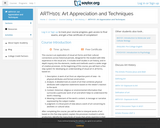
This course is an exploration of visual art forms and their cultural connections for the student with little experience in the visual arts. It includes a brief study of art history, and in-depth studies of the elements, media, and methods used in creative thought and processes. It is the only resource I have found that approximates techniques, media, and an overview of different processes that is usually the first half of a printed text on art appreciation or an introduction to art. This is geared toward an undergraduate, lower-level student population. The art history survey is inadequate, but combined with another source, like Boundless' art history, this can be a complete text for an Art 100 course.

The Syllabus for Bio. 013, Writing in the Sciences - Evolutionary Themes, is a College Writing 2 course that develops student skill in science writing for different audiences: Scientists writing for themselves (the Field journal); Scientists writing for other scientists (the Review article); and Scientists writing for students/ society ( an Essay for a periodical that utilizes analogy/metaphor). To inform this writing, students read and discuss Darwin's original works and the writings of more contemporary evolutionary theorists, including E. Mayr and S.J. Gould. This course is appropriate for incoming students as well as more advanced biology students.

Syllabus for Macromolecular structure and bioinformatics at Queens College

This is a syllabus for a first-semester introductory biology class, including reading links for current news articles related to the course topics as well as an OpenStax textbook.

This is a syllabus for a first-semester introductory biology class, including reading links for current news articles related to the course topics as well as an OpenStax textbook.

This course is an introduction to the moral challenges that arise in the design and execution of biomedical research and the development of medical interventions. A historical review segues into detailed examination of key ethical concepts and principles, as well as topics of particular concern. At the culmination of the semester, students apply their knowledge of research ethics to an ethical analysis of their MTM BioDesign projects.